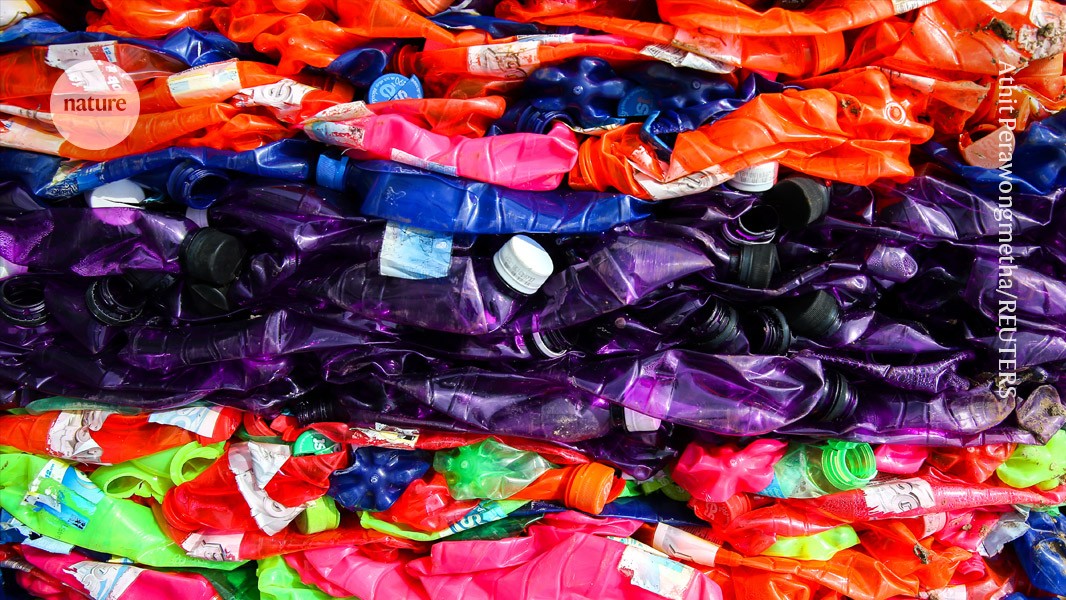Can the world finally agree on how to end plastic pollution? We should know by the end of the week.
Negotiators from 175 countries are in Busan, South Korea, to thrash out what many hope will be a legally binding United Nations treaty to drastically cut plastic pollution. Researchers are hopeful a strong treaty will emerge from the fifth — and final — session of the negotiations, but there is a high chance that any agreement will be weak or delayed. Until a global consensus is reached, however, many cities and nations are introducing their own policies.
“Some countries are pre-emptively protecting themselves, regardless of what happens with the treaty,” says Trisia Farrelly, an environmental anthropologist at New Zealand’s Cawthron Institute in Nelson and a co-lead of the Scientists’ Coalition for an Effective Plastics Treaty, an independent group attending the meeting as an observer.
These policies showcase what can work, researchers say, but also highlight why a global effort is important. Some groups, including the scientists’ coalition, support a treaty that will reduce production of non-essential plastics, which have skyrocketed to unsustainable levels. But some nations, particularly those that make petrochemicals, want the treaty to focus on waste management instead, including steps such as recycling.
“If we miss this opportunity to do unified policy-making with standardized guidelines, we’re going to set ourselves back decades or more,” says Douglas McCauley at the University of California, Santa Barbara, who published modelling work on plastics policies earlier this month1.
Ban single-use plastics
More than 90 nations and territories have passed full or partial bans on single-use plastic products such as carrier bags. These bans can be very effective. One analysis showed that bans in five US states and cities together cut consumption of single-use plastic bags by about six billion bags per year2. Several studies have also shown huge reductions in plastic litter in waterways, says McCauley. Even fees can work. A litter survey in the United Kingdom found that the number of plastic bags found on beaches dropped by 80% after the nation introduced a mandatory fee for single-use carrier bags, although other forms of litter had increased.
But bans that are poorly designed or enforced are likely to be ineffective. California, for example, allowed shops to switch to thicker, reusable carrier bags — but people still threw them away, leading to a higher rate of plastic disposal than before. Policies need to be monitored and reviewed, says McCauley. “You have to put a policy in place, take data and then whack-a-mole the loopholes.”
Make the producer pay
Many nations and US states require companies that produce plastic packaging to pay for it to be recycled, which can boost recycling rates. In Spain,for example, the government introduced an ‘extended producer responsibilities’ policy, and the recycling of paper and plastics rose from 5% up to 81%.
Such policies are also meant to incentivize companies to redesign their packaging, but because most of the fees are based on weight, they mainly influence the amount of packaging used rather than its composition. A good idea, says Richard Thompson, a marine scientist at the University of Plymouth, UK, and a co-lead of the scientists’ coalition, is to have a policy that rewards or mandates inclusion of recycled content in products: in the United Kingdom, for example, plastic producers pay a tax of £217.85 (US$274) per tonne of plastic, but only for packaging that’s less than 30% recycled. Such incentives “will pull demand in the right way”, says Thompson.
As with all policies, there are some good, some bad, says Farrelly. She has seen policies that end up increasing the use of recycling centres in the Pacific islands that don’t have high safety standards for their workers, for example.


